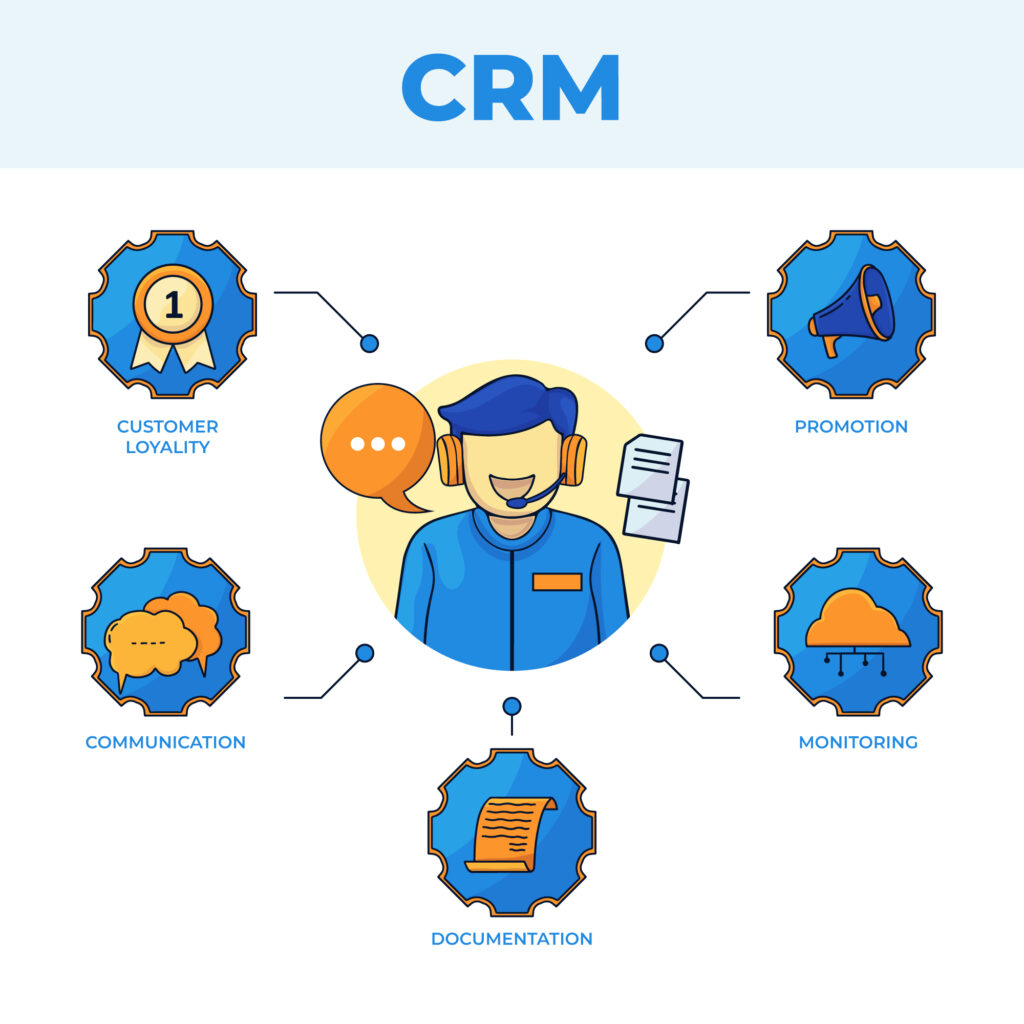Implementing CRM is a crucial step for businesses to streamline the sales processes and drive revenue growth. Business News Daily reports that CRM is one of the world’s fastest-growing industries, expected to grow at a rate of 14% between 2021 and 2027.
However, the success of CRM implementation largely depends on the level of adoption by the sales team. To ensure that your sales team fully embraces and effectively utilizes CRM, motivation is key. By motivating the sales team to use CRM, businesses can achieve their sales goals.
Why is CRM important for sales team?
CRM holds great significance due to its accessibility feature, which allows users to access it from any device and location. Cloud-based, Saas CRM provides seamless access through desktops, tablets, and smartphones with ease. This means that mobile CRM is typically included in most platforms, empowering users to conduct various customer-related activities.
According to research by CSO Insights, 27% of salespersons say that a long sales cycle is one of the biggest barriers to sales effectiveness. With well-implemented CRM software, businesses can effectively manage all the customer information, in one central location.
This enables companies to better understand their customers and provide personalized experiences, which in turn develops strong customer relationships.
Why is it significant for sales team to build relationships with customers?
Developing strong relationships with customers is crucial for businesses as it fosters long-term customer loyalty. This can result in increased opportunities for cross-selling, up-selling, and referrals. Additionally, building relationships helps to mitigate customer churn in the event of any negative experiences.
CRM software offers a comprehensive suite of tools to build customer relationships. By leveraging CRM solutions to develop meaningful connections with customers, businesses can enjoy a range of benefits such as increased sales, improved customer retention, and valuable marketing insights.
Despite the benefits of using CRM for building relationships with customers, many salespeople still resist adopting it. But why is this the case?
Why do salespeople avoid using CRM?
Time-consuming:
Salespeople may perceive CRM as time-consuming and view it as taking them away from their primary job of selling. They may feel that the time spent on data entry and reporting is not worth the effort.
Lack of understanding:
Salespeople may not fully understand the benefits of using CRM. They may not see how it can help them close more deals or increase efficiency and may see it as unnecessary or irrelevant.
Poor user experience:
CRM systems can be complex, and salespeople may feel overwhelmed by the amount of information they need to input and track. If the CRM system is difficult to use or requires too much effort to navigate, salespeople may hesitate to use it. They may become frustrated with the system and revert back to their old processes.
Lack of incentives:
Salespeople may not see any immediate benefits or incentives for using CRM. They may not see how it will impact their commissions or how it can help them reach their sales goals. Without proper incentives, they may not see the value in using the system.
Resistance to change:
Some salespeople may simply resist change, especially if they have been successful using their current methods. They may fear that they will have to learn new tools or workflows or might see CRM as unnecessary and even threatening to their established sales process.
It is essential to address these concerns and communicate the benefits of CRM effectively to motivate salespeople to use it.
Motivating the sales team to use CRM

Highlight the benefits:
Highlighting the advantages of using a CRM can drive the sales team to adopt CRM usage in sales. Adopting CRM has its own benefits like centralized customer data, setting reminders, users no longer need to manually compile reports from multiple spreadsheets, and so on.
Ultimately, these benefits create more time for selling, allowing salespeople to focus on interacting with customers and closing deals.
Goal setting:
By setting and tracking goals in CRM software, salespeople can monitor their progress and stay motivated to achieve their milestones. CRM provides a clear overview of their goals, sub-goals, and their progress towards achieving them, which helps salespeople stay on track and use it.
Gamify CRM Usage:
Creating leaderboards or competitions can foster a healthy sense of competition among team members. Gamification makes CRM usage fun and encourages the sales team to actively participate and utilize CRM in their sales processes.
Provide comprehensive training:
The effectiveness of adopting CRM depends greatly on the salesperson’s ability to use it. This makes learning how to use the system a crucial step in the process. Conduct regular workshops, webinars, and one-on-one coaching sessions to ensure that each team member is proficient in using CRM.
When your team is confident in their CRM skills, they will be more inclined to use it consistently.
Emphasize Convenience:
Choose an easy-to-use CRM that integrates with existing sales tools for convenience.
- Easy access to the CRM software.
- No complex logins, multiple passwords, or time-consuming data entry.
- Integration with tools that your sales team uses, such as email, calendar, or document management systems.
- Accessible on mobile devices, allowing your team to access and update customer data on the go.
This can reduce the learning curve and make it easier for salespeople to incorporate into their workflow.
Provide support:
Address any challenges or roadblocks a salesperson may encounter and provide solutions. Offer support to ensure that salespeople are comfortable using the CRM system. Assigning a dedicated support team to assist salespeople with issues is also a great way to motivate adoption. Having a go-to resource for support can help alleviate concerns & frustrations.
Celebrate success:
Recognize and celebrate team members who are effectively utilizing CRM and showcase their success stories to motivate others. Recognize them through bonuses, badges, or other rewards. This can be an effective way to encourage adoption and keep salespeople engaged.
Lead by example:
As a sales leader, it’s crucial to lead by example and actively use CRM in your own sales activities. Show your team the importance of CRM by using it consistently in your day-to-day sales tasks. Make CRM usage non-negotiable and hold your sales team accountable.
Key features of CRM software that enhance sales effectiveness:
Lead Management:
Sales reps automatically capture leads from multiple sources and segment them according to demographics, buying behavior, and preferences. Through key insights from the marketing department, salespersons can enhance the sales process by tailoring their responses to each lead. Being able to move leads through the sales funnel is a challenging task and lead management feature can simplify it.
Location-Based Visit Logging:
CRM software also include geolocation features enabling sales team to log their visits with customers based on their location. This allows them to track their activities in real-time, optimize their routes, and plan their visits more efficiently. The ability to log visits based on location adds a unique and practical dimension to CRM.
Reports:
Reports generated through CRM deliver a unified view of all key sales information. Using a personalized dashboard, salespeople can easily track their progress with insights on overall achievement to date. CRM software provides a simple and effective means for salespeople to measure their performance and work towards enhancing it.
Mobility:
Many CRM systems are now mobile-friendly, which means salespeople can access customer information and sales data on the go. This is beneficial for remote or field sales teams, as they can stay connected and informed. By having access to crucial information, sales reps can make well-informed decisions quickly and respond to leads faster. More time can be spent on having productive and meaningful discussions.
Toolyt CRM goes beyond just storing customer data. It offers a complete set of tools to help sales reps manage their work effectively. The wide range of features in Toolyt demonstrate how CRM can empower your sales team. This makes their sales processes smarter, more interactive, and more collaborative. By utilizing these tools, your sales team can attain exceptional sales outcomes, and propel your business towards success.





